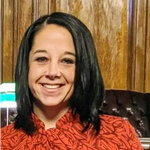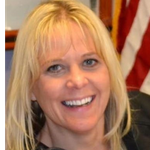Agenda
- Yoga
Kelsey Sellmann - Breakfast
- Welcome
Welcome to Conference Attendees
- Opening Keynote
Sheldon Jacobs, PsyD, LMFTVista/Scenic Room
- Morning Break
Snacks and Refreshments
- Morning Breakout Sessions
- Lunch
Lunch in the main ballroom
- Afternoon Breakout Sessions
- Afternoon Break
Snacks and Refreshments
- Breakout Session
- Yoga
Kelsey Sellmann
- Yoga
Kelsey Sellmann - Breakfast
- Welcome
Welcome to Conference Attendees
- Keynote Speaker
Dr. Christina Vela, DPP - Morning Break
Snacks and Refreshments
- Day 2 Breakout Session
- Lunch
Lunch in the main Ballroom
- Afternoon Breakout Sessions
- Afternoon Break
Snacks and Refreshments
- Keynote Speaker
Rob Reed - Yoga
Kelsey Sellmann
- Yoga
Kelsey Sellmann - Breakfast
- Welcome
Welcome to Conference Attendees
- Keynote 3
Chris Kaag - Morning Break
Snacks and Refreshments
- Morning Breakout Sessions
- Lunch
Lunch in the main ballroom
- Breakout Session
- Afternoon
Snacks and Refreshments
- Afternoon Breakout Sessions
- Team Building Techniques in Virtual Environments
Rebekka Matthews•Dylan Black•Nicole LorenzettiParticipants will able to:
• Describe principles and inherent advantages of team building in non-physical environments
• Implement these principles in formal leadership roles
• Describe methods to encourage these principles in teams as members - Racially Oriented Relational Supervision
Courtney Dandy-FralickParticipants will able to:
• Demonstrate listening intentionally
• Demonstrate forming a connection intentionally
• Identify personal communication style and understand how it compares in contrast to others
• Demonstrate communicating intentionally- CD
Courtney Dandy-Fralick
- CD
- Personality Preference and Emotional Intelligence: Team Building
Lakiesha OliverParticipants will able to:
• Describe emotional intelligence and personality preference
• List alternate strategies to assessing, understanding, and resolving communication limitations
• Identify the impact of personality preference and emotional intelligence in team building strategies - How to Feel Like You're Playing with House Money
Anthony Hakel
- Open Your Eyes, Listen Carefully and Act Accordingly: Moral Distress During Covid-19
Megan TrittParticipants will able to:
• Define moral distress and name causes specific to moral distress during Covid 19
• Identify five reactions to moral distress that include both individual reactions and organizational reactions
• Apply three strategies for mitigating moral distress on an individual, team and institutional level
• Articulate the connection between moral distress during Covid 19 and the social work profession rooted in our set core values
- Exploring Professional Boundaries Through Asynchronous Learning
Marc Maddy•Shawn WunderParticipants will be able to:
• Articulate the common elements of effective learning and development
• Identify the advantages of asynchronous, scenario-based learning and development in professional boundary formation
• Develop content ideas where asynchronous, scenario-based learning could be of use in their organizations - Review of Ethical Standards
- Reshaping our Future
Andrea Concordia•Mary Ann Kowalonek•Stan Miller•Jill Schaeffer•James Schu•L. Alexandra Southworth-MolchanParticipants will be able to:
• Analyze the efficiencies and opportunities of your current organization’s structure
• Identify key stages of an effective change model
• List ways to evaluate the long-term effectiveness of changes
Andrea Concordia
County Programs Service Line Director of Service Access & Management Inc
Mary Ann Kowalonek
Vice President, Treasurer and Chief Financial Officer at Service Access & Management, Inc.
Stan Miller
Director of Budgets and Grant Management at Service Access & Management, Inc.
Jill Schaeffer
Director of Community Wellness & Support Service Program at Service Access & Management, Inc.
James Schu
Director of Supports Coordination at Service Access & Management, Inc.
L. Alexandra Southworth-Molchan
Director, People Strategies & Development of Service Access & Management, Inc.
- How to Win Even When Your Chips Run Out
Anthony Hakel - Designing and Implementing an Internal Credentialing Program to Emphasize Service Quality and Prevent Drift
Marc Maddy•Robin TeitelbaumParticipants will able to:
• Define the central elements of individual credentialing programs and processes
• Describe at least two measurement strategies to highlight service quality
• Articulate the role of internal credentialing programs in the prevention of treatment and service drift
- Securely Protecting Sensitive Information
Connie Mastovich•Ginny Ysa
- The Way We Work Is Changing – Building Culture With Remote Teams
Stephanie Lawson•Veronica PilonParticipants will able to:
• Identify their own leadership strengths and opportunities for growth
• Describe tools/techniques to build collaboration, teamwork and trust to help their individuals/teams excel
• Apply practices/suggestions to a current work challenge and be able to celebrate wins within their organizations - World Building for Scenarios: A Pen & Paper Approach to Engaging Learning
Shawn WunderParticipants will able to:
• Demonstrate listening intentionally
• Demonstrate forming a connection intentionally
• Identify personal communication style and understand how it compares in contrast to others
• Demonstrate communicating intentionally
- Navigating the Privatization of Children and Youth Services
Nancy ClemensParticipants will be able to:
• Identify the processes involved with privatizing Children and Youth Services
• Recognize and prepare for the obstacles inherent is this venture
• Assess the value of privatization in their own jurisdictions - Adverse Childhood Experiences and the Impact on Adult Physical and Social Health Outcomes
Robin Teitelbaum"Participants will be able to:
• Define Adverse Childhood Experiences or ACEs
• Identify the impact of ACEs and toxic stress on childhood brain development
• Apply the relationship of ACEs to the development of risk factors for disease, adult health risk, behaviors and social outcomes
- Parents' Perceptions of Youth Substance Use
Marcia Goodman-Hinnershitz•FangHsun Wei
Marcia Goodman-Hinnershitz
Director of Planning and Resource Development at Council on Chemical Abuse- FW
FangHsun Wei
Associate Professor at Kutztown University
- Diversion, Early Intervention and Prevention: Strategic Programs to Keep Youth and Families Out of Formal Systems
Cheryl Wright•Yolanda BennetParticipants will able to:
• Describe how youth/families escalate into formal systems
• Differentiate the importance of programs that divert youth with low-level offenses from formal systems
• List evidenced-based principles and approaches in successful intervention programs
- Engagement Skills in Case Management
Traynesha AllenParticipants will able to:
• Describe how to build trust with your participant
• Create a safe space for participant to be honest
• Explain how to respect participants' autonomy- TA
Traynesha Allen
Intensive Case Manager at Resources for Human Development
- TA
- Developing Positive and Healthy Relationships
Maria GonzalezParticipants will be able to:
• Engage with clients in a healthy and constructive manner while serving as a professional within client services
• Define personal biases such as transference and countertransference
• Identify methods of professional engagement with supervisors and networking professionals - A Model of Whole Person Care for Supporting People with Complex Needs
Melissa Richards•Jacque Pulling•Daniel Guidice
- QPR- Question, Persuade Refer
Amy Groh - Case Management Problem-Solving and Decision-Making Process
Ervin Munro
- Examining Your Mindset: Are There Downsides To Being Empathetic
Participants will able to:
• Define empathy in a way that is clearly distinguished from similar terms
• Explain how often we unconsciously use the tool of empathy and the potential downsides of making that our default setting
• Develop the ability to be conscious of the mindset with which you approach case management, and how that effects your decision making - Strength Based Language in Person Centered Planning
Lana Hunt•Carolyn UnderwoodParticipants will able to:
• Define Person-Centered Planning
• Describe the importance of strength-based language in Person-Centered Planning
• Demonstrate strength-based methods, techniques and tools, including the Charting the LifeCourse Framework
Lana Hunt
Director, Communications and Professional Development of IPMG- CU
Carolyn Underwood
Director of Case Management Operations at IPMG
- Crisis Prevention and Intervention in Case Management During a Pandemic
David Wilkinson
- Creative and Effective Engagement Strategies
Victoria Urban•Tahira Washington
- Engagement Skills in Case Management
Traynesha Allen•Angela Jones-WomackParticipants will able to:
• Describe how to build trust with your participant
• Create a safe space for participant to be honest
• Explain how to respect participants' autonomy
- Collaboration to Continuity in a Mental Health Forensic Diversion Program
Andrea ConcordiaParticipants will able to:
• Use a psycho forensic evaluation to identify intent and motive based on the consumer’s mental health symptomology
• Identify how engagement will decrease the likelihood of criminal recidivism
• Outline skills that foster mental health wellness and life goal achievement during forensic re-integration
• Describe how diagnosis can impact forensic commitments and life style progression
• Demonstrate skills to help develop a comprehensive continuity of care plan - Making Virtual Contacts Meaningful
Jeffrey MarksParticipants will be able to:
• Identify the limitations of telephone and virtual contacts relative to other media of communication
• Structure a telephone or virtual contact and apply the basic elements of the process of a conversation
• Identify possible content relative to each of these elements and apply it in a conversation with a person served or family member
- Microaggressions and Microinterventions: What Case Managers Need to Know for Cultural Responsiveness
Janice GaskerParticipants will able to:
• Identify microaggressions that relate to race, gender expression, sexual orientation, disability, religion
• Analyze the impact of microaggressions, including health and mental health
• Assess situations in which microinterventions may be prudent and effective
• Practice microinterventions
- Fieldwork Safety and Awareness Scenario Training
Sandi Bellis•Ronald FrederickParticipants will be able to:
• Identify potential safety risks to themselves, as well as clients
• Demonstrate appropriate responses to identified safety hazards
• Recognize when it’s time to leave
- Fieldwork Safety and Scenario Training
Sandi Bellis•Ronald FrederickParticipants will be able to:
• Identify potential safety risks to themselves, as well as clients
• Demonstrate appropriate responses to identified safety hazards
• Recognize when it’s time to leave
- Learn Spanish Names and a Few Related Things
Ervin Munro - Research on Case Management & Covid
John Vafeas
- Supporting Professionals' Comfort with Uncomfortable Topics
Mary Rita WellerParticipants will be able to:
• Use words related to intimacy and sexuality to support their comfort with slang and slur language
• Identify cultural and contextual influences of sexuality
• Practice interventions that may be helpful in promoting positive sexuality for the people that they support
- Dialysis Patients’ Self-Medication Management
- Care Management: Integrating Physical Health and Behavioral Health
Amie Hoffman•Stacey StaudenmeierParticipants will be able to:
• Outline the value of managing the whole person through Care Management
• Integrate the Physical Health and Behavioral Health models to improve the quality and cost of care
• Outline ways to leverage data and technology to assist identifying persons for High Risk Care Management intervention
- Erskine Green Training Institute • Increasing Employment Outcomes
Andy KirbyParticipants will be able to:
• Use the assessment process to determine a student’s acceptance status and the instructional approach for the 10- and 13-week training programs
• Describe the role Vocational Rehabilitation has played in supporting individuals wanting to attend Erskine Green Training Institute
• Explain how EGTI has partnered with the hotel, restaurant, and hospital settings to provide on-the-job training sites for its students
• Outline how to take advantage of this program nationally - The Case Manager’s Role Alongside Those With a Substance Use Disorder
Samantha ArmitageParticipants will able to:
• Discuss the impact of the COVID-19 pandemic on those in both short and long term recovery from a substance use disorder
• Explore the role of formal and informal supports
• Outline how the integration of therapeutic, peer, and familial support promotes best outcomes and success in sustaining recovery
- De-escalation and Safety
Ronald Frederick•Hyung KimParticipants will able to:
• Describe the “Escalation Cycle”
• Describe the individual’s presentation in the various stages of the cycle
• Describe and implement strategies to de-escalate the individual (and the staff person himself/herself), while maintaining safety for all
• Identify and apply effective skills in communication
• Identify and apply effective strategies in using objects and space to maintain safety, while being mindful of the setting/situation
• Utilize basic, simple physical movements in response to physical contact with or from another person
Ronald Frederick
Personal Safety Director of Service Access & Management, Inc.- HK
Hyung Kim
Personal Safety Trainer at Service Access & Management, Inc.
- Building Collaborations and Supports for Peer Organizations and Services
Kasey Moyer•John Walsh"Participants will able to:
• Identify at least three potential barriers and how to address them
• Identify the possible stakeholders , possible people who pose a threat and how to address them
• Describe the benefits of peer support, how they complement traditional services and how to capture the attention of potential funders
- Benefits of an Active Lifestyle for Cognitively Challenged Consumers
Chris Kaag - Hearing Voices • A Pat Deegan Simulation
Michael Rodriguez•Shelby RushParticipants will able to:
• Learn the types and varieties of voice hearing experiences
• Increase empathy and understanding of the experience of hearing distressing voices
• Learn more effective ways of helping people who hear distressing voices
- Increasing Awareness & Response to Problematic Use of Substances
Ronald Frederick•Jeffrey MarksParticipants will able to:
• Identify the most popular drugs, as well the paraphernalia used to introduce each drug into the human body
• Recognize the dangers associated with the abuse of narcotics, prescription drugs, synthetic designer drugs, and alcohol
• Recognize indicators of problematic substance use
• Practice conversations with persons served, family members, and other supports about these indicators and stopping or limiting use - Creating a Movement to Support Forensic Case Management Initiatives
Jillian Gosselin•Melissa ShingleParticipants will able to:
• Define what "Forensic" involvement means within a mental health framework
• Describe barriers to serving individuals with criminal justice involvement and serious mental illness
• Discuss the Stepping Up Initiative and the key points
• Identify the key stakeholders needed to support forensic initiatives
- Self-Care for Case Managers During Changing and Challenging Times
Catherine BrenemanParticipants will be able to:
• Describe at least three self-care strategies for optimal personal and case management work functioning
• Describe compassion satisfaction and its impact on case managers and clients
• Identify the differences between a Growth Mindset and a Fixed Mindset- CB
Catherine Breneman
Assistant Professor of Social Work at Hood College
- CB
- Maintaining Wellness in the Midst of Ongoing Stressors
Jeffrey Marks•Amy GrohParticipants will able to:
• Describe how anxiety and other challenges are “normal” to ongoing stressors
• Describe the three types of coping strategies
• Describe how the participants begin to apply at least two coping strategies
- St. Jude's Ranch Tour
- St. Jude's Ranch Tour
- Trauma Informed Supervision
Lydia DebiaseParticipants will be able to:
• Outline the development of the trauma-informed lens
• Describe the Sanctuary Model including the four pillars and the seven Sanctuary Commitments to support trauma-informed care holistically
• Identify strategies to implement trauma-informed supervision into their agencies
- Mental Fitness & the 11 Triumphs
Bianca McCallParticipants will able to:
• Outline the prevalence of trauma and adversity nationally, locally, and within specific populations
• Implement interventions from a collaborative, strength-based approach, appreciating the resilience of trauma survivors
• Evaluate and build a trauma-informed organization and workforce









































